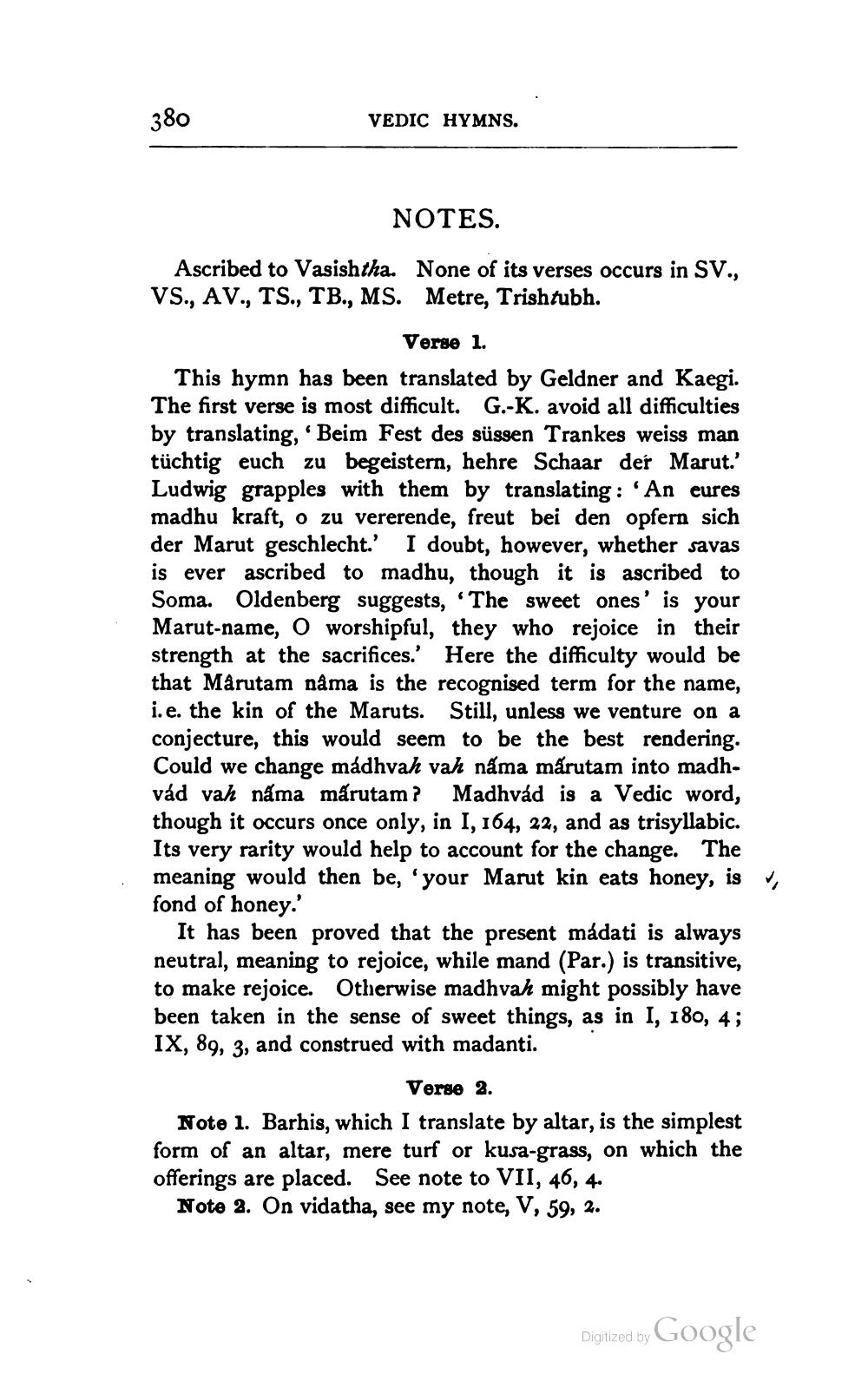________________
380
VEDIC HYMNS.
NOTES.
None of its verses occurs in SV., Metre, Trish/ubh.
Ascribed to Vasishtha. VS., AV., TS., TB., MS.
Verse 1.
This hymn has been translated by Geldner and Kaegi. The first verse is most difficult. G.-K. avoid all difficulties by translating, 'Beim Fest des süssen Trankes weiss man tüchtig euch zu begeistern, hehre Schaar der Marut.' Ludwig grapples with them by translating: 'An eures madhu kraft, o zu vererende, freut bei den opfern sich der Marut geschlecht.' I doubt, however, whether savas is ever ascribed to madhu, though it is ascribed to Soma. Oldenberg suggests, 'The sweet ones' is your Marut-name, O worshipful, they who rejoice in their strength at the sacrifices.' Here the difficulty would be that Mârutam nâma is the recognised term for the name, i.e. the kin of the Maruts. Still, unless we venture on a conjecture, this would seem to be the best rendering. Could we change mádhvah vah nấma márutam into madhvád vah náma márutam? Madhvád is a Vedic word, though it occurs once only, in I, 164, 22, and as trisyllabic. Its very rarity would help to account for the change. The meaning would then be, 'your Marut kin eats honey, is, fond of honey.'
It has been proved that the present mádati is always neutral, meaning to rejoice, while mand (Par.) is transitive, to make rejoice. Otherwise madhvah might possibly have been taken in the sense of sweet things, as in I, 180, 4; IX, 89, 3, and construed with madanti.
Verse 2.
Note 1. Barhis, which I translate by altar, is the simplest form of an altar, mere turf or kusa-grass, on which the offerings are placed. See note to VII, 46, 4.
Note 2. On vidatha, see my note, V, 59, 2.
Digitized by Google




